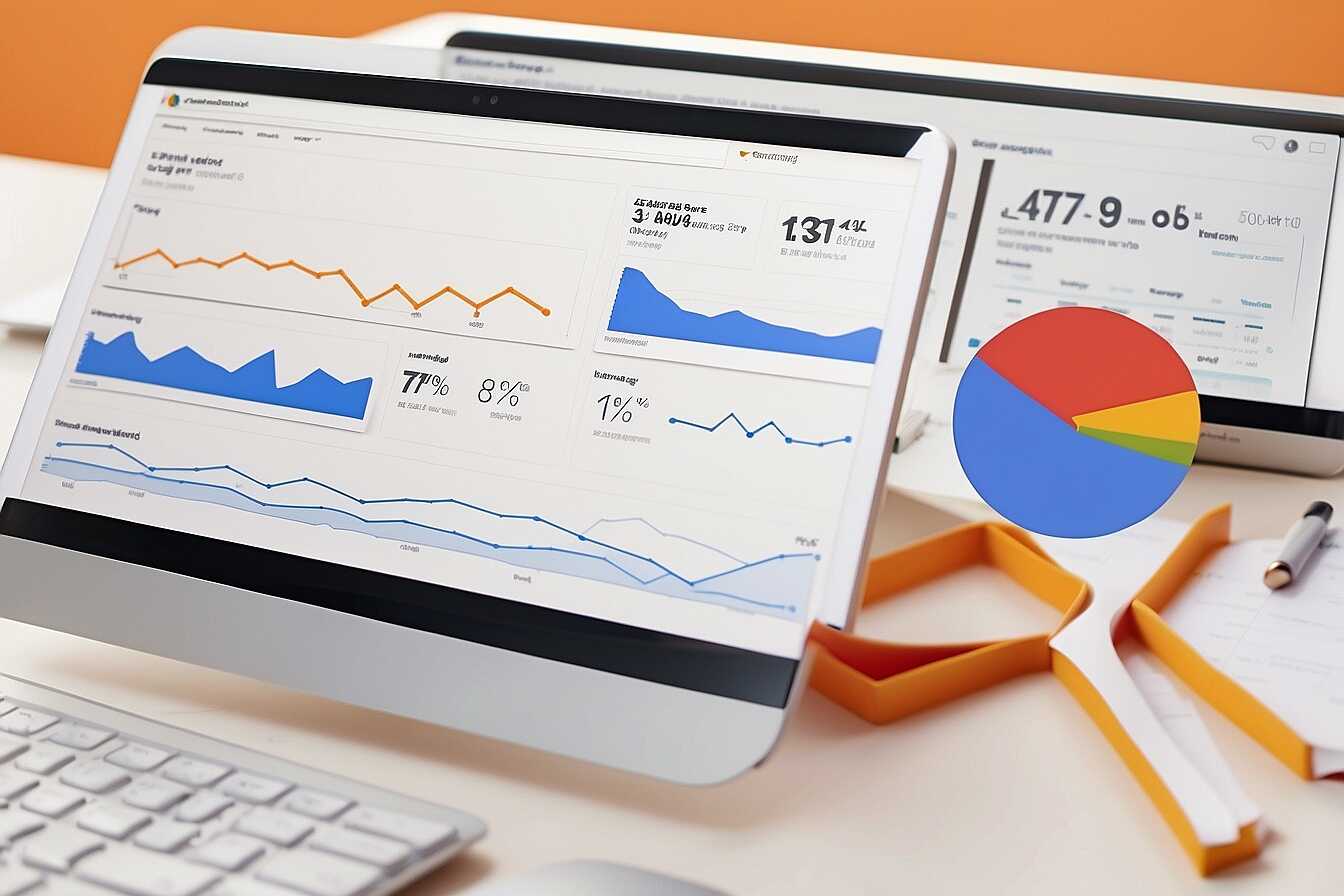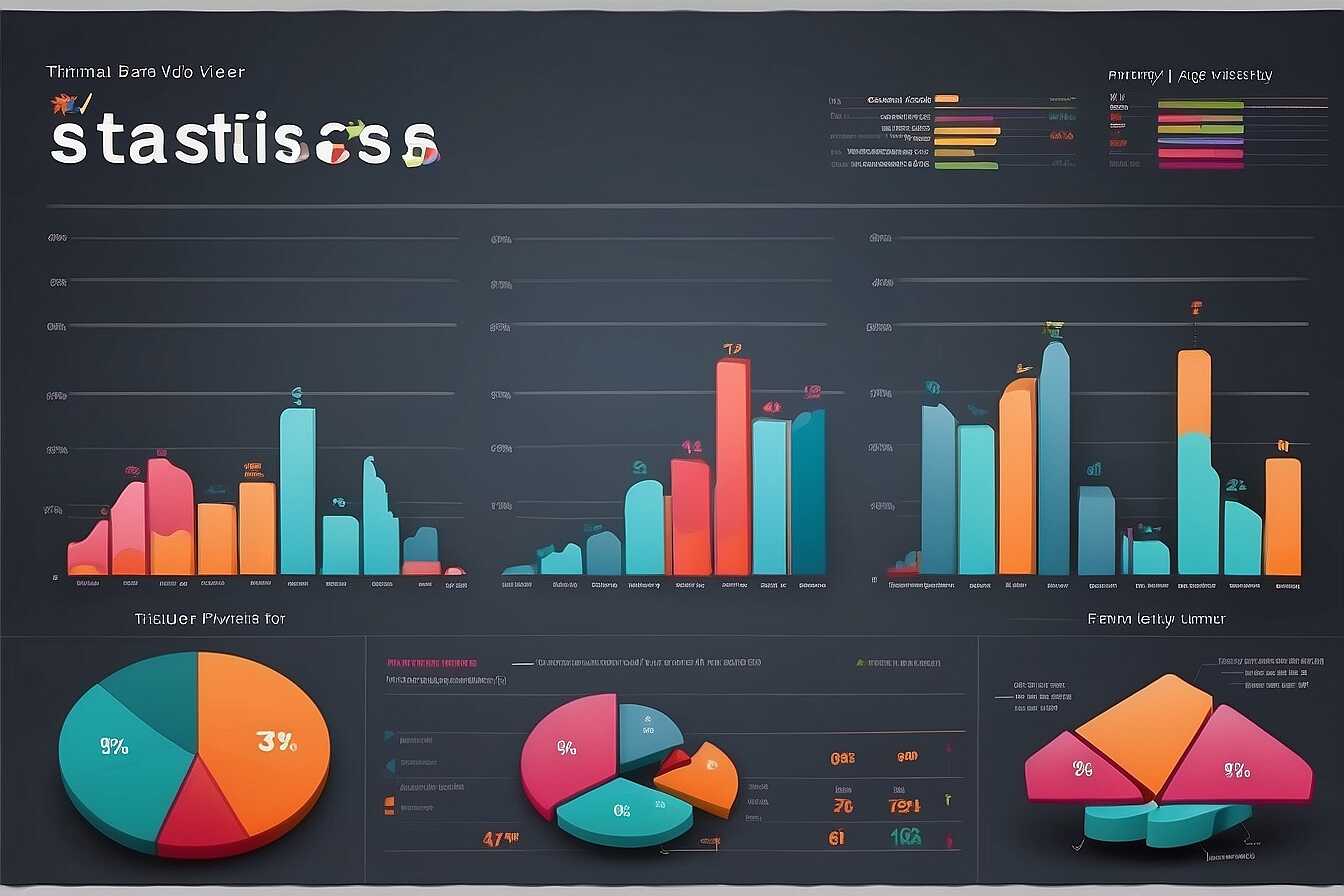Monitoring Google algorithm updates with SEO tools is crucial for staying ahead in the digital landscape. These updates can directly impact your website’s ranking and visibility, making it essential to track changes effectively. At Metrics Rule, we provide insights on leveraging specialized SEO tools to simplify this process and improve your online presence. By understanding how to monitor these updates, you can proactively enhance your SEO strategies and adapt to the ever-evolving search engine environment.
The Significance of Tracking Google Algorithm Changes for SEO Success
Monitoring Google algorithm updates is essential for SEO success because these changes directly impact your website’s ranking and visibility. Notably, algorithm updates can lead to significant fluctuations in search engine rankings, affecting your organic traffic and ultimately your business’s bottom line. For instance, after the Penguin update, many websites experienced drastic drops in rankings if they engaged in manipulative link-building practices. Therefore, staying updated on these changes allows SEO professionals and website owners to adjust their strategies accordingly, ensuring their content remains aligned with Google’s best practices.
Major Google Algorithm Updates and Their Impact
Several major Google algorithm updates have significantly influenced search engine ranking, including Panda, Penguin, and Hummingbird. Each of these updates targeted specific SEO practices, helping improve search result quality and user experience. The Panda update focused on content quality, penalizing sites with thin or duplicate content, while the Penguin update targeted spammy link profiles. Lastly, Hummingbird enhanced the search engine’s understanding of user intent, allowing it to deliver better search results. By understanding and adapting to these major updates, digital marketers can enhance their SEO strategies and improve their website’s ability to rank well.
Top SEO Monitoring Tools for Tracking Google Algorithm Updates
When choosing SEO monitoring tools to track Google algorithm updates, focus on features such as reliability, user experience, and data analytics. Essential tools like SEMrush and Moz provide in-depth tracking of keyword performance and algorithm changes. They help users analyze historical data alongside current rankings, ensuring that businesses can adapt quickly. Google Analytics also offers valuable insights to understand how updates affect site traffic. Using these SEO monitoring tools enhances the efficiency of adapting strategies according to search engine changes.
Top Tools for Effective Google Update Tracking
Some of the best SEO monitoring tools for tracking Google algorithm updates include Semrush, Moz, and Ahrefs. Semrush excels at providing comprehensive keyword research tools alongside competitive analysis. Moz’s algorithm updates tracker offers a user-friendly dashboard that displays the reliability of SERP changes over time, enhancing overall user experience. Ahrefs provides robust data on backlink performance and keyword dynamics, which is crucial during algorithm updates. These tools cater to various aspects of SEO, ensuring users can easily adapt to Google’s evolving landscape.

Interpreting Algorithm Update Data for Better SEO Insights
Interpreting algorithm update data allows you to transform numbers into valuable SEO insights. Start by using SEO tools to access key metrics such as organic traffic, keyword rankings, and bounce rates after an update. Look for trends pointing to improved or decreased visibility for certain keywords. Analyze how changes in Google’s algorithms affect competitors; tools like SEMrush and Moz can help benchmark your performance against theirs. By evaluating these results, you can develop actionable SEO strategies focused on enhancing areas that need improvement.
Identifying Key Trends Post-Algorithm Update
Identifying key trends post-algorithm update is essential for maintaining SEO performance. After an update, review your SEO performance metrics, such as increases or decreases in organic traffic. Compare historical data to spot patterns, such as falling rankings for specific keywords or improved results for others. Community forums and expert reviews can provide additional context, helping you understand which attributes of your site may have contributed to these changes. By recognizing these trends early, you can implement timely adjustments to your SEO strategy, ensuring ongoing success in the ever-changing landscape.
Numerical Insights into Algorithm Changes
- Over 4,000 algorithm updates occur each year.
- Google releases major updates approximately every 3-4 months.
- About 15% of daily search queries are brand new.
- Search traffic can drop by 30% after a significant update.
- Studies show that top-ranking sites change within two weeks of an update.
- A single update can affect as many as 20% of searches.
- Major updates often target spammy content and low-quality links.

Strategies for Integrating Algorithm Tracking into Your SEO Efforts
Integrating algorithm tracking into your SEO efforts is essential for maintaining effective performance. You can achieve this by utilizing necessary tools like Google Analytics, SEMrush, or Moz, which provide reliable data on algorithm changes. For example, comparing traffic patterns before and after Google updates helps you understand their impact and adjust your strategies accordingly. Collectively, you should review your keywords, consider on-page optimizations, and enhance your content based on these updates. Annual checks for algorithm changes can help ensure your adjustments align with the latest search engine requirements, thereby improving your site’s efficiency.
Understanding the Impact of Algorithm Changes on Keyword Strategy
Understanding how algorithm changes affect your keyword strategy is crucial for long-term success. Regular performance reviews allow you to analyze keyword rankings before and after algorithm updates. Reliable tools can handle this data-intensive process, helping you quickly identify keywords that need attention. For instance, if a new update prioritizes local search results, your SEO strategies should shift to improve local keyword targeting. Additionally, testing different keyword variations will enable you to find the best-performing options. To ensure you meet changing demands, remain proactive about researching trending keywords and adapting your content strategy.

Real-Life Examples of Businesses Adapting to Algorithm Changes
Many businesses have successfully adapted to Google algorithm updates by implementing effective strategies. For instance, a well-known e-commerce site revamped its product descriptions and improved page load speed. This resulted in a 40% increase in organic traffic following a significant Google update. Similarly, a local service company focused on enhancing their online reviews and localized keyword strategy, leading to improved visibility and a 50% increase in inquiries. These case studies highlight that continuous testing and monitoring of SEO performance are essential for resilience against algorithm changes.
Industry-Specific Strategies for Adaptation
Each industry faces unique challenges when responding to Google algorithm updates. For instance, e-commerce businesses often focus on optimizing product pages for better crawling and indexing. Implementing structured data helps search engines understand product offerings, thereby enhancing visibility. In contrast, content-centric sites benefit from regular reviews and adjustments to keyword strategies based on algorithm changes. These adjustments can include expanding content to address user queries more effectively. By leveraging analytics and user feedback, companies can create adaptable SEO strategies that ensure sustained online performance.
Advantages of Staying Updated on Changes
- Staying informed helps you adapt your strategy quickly.
- You can enhance your site’s visibility in search results.
- Effective tracking prevents major traffic losses.
- Monitoring updates supports better content creation aligned with trends.
- It fosters improved website performance through continual optimization.
- You can identify ranking drops and address issues faster.
- You gain insights into competitive landscape shifts.

Mistakes to Avoid When Monitoring Algorithm Changes
When tracking Google algorithm updates, common mistakes include relying on outdated tools, ignoring the context of changes, and failing to document outcomes. Many SEO professionals underestimate the importance of using reliable monitoring tools tailored for algorithm tracking. Furthermore, reviewing updates without a complete understanding of their implications can distort your strategy. It’s essential to ensure consistent testing and verification to enhance your data reliability and prevent misinformation. Regularly reviewing algorithm impacts helps solidify your strategy and enhance your performance.
Choosing the Right Tools for Algorithm Monitoring
Selecting the best SEO tools for tracking algorithm updates is crucial. Look for tools that provide comprehensive features like real-time alerts, trend analysis, and historical data tracking. Reliable tools can handle large datasets, enabling you to perform keyword research efficiently and keep up with changes. Popular tools, such as SEMrush and Moz, offer comparison features to review your site against competitors. Prioritize tools that enhance your tracking capabilities and improve your technical SEO performance. Tools that incorporate AI for data analysis can significantly enhance the accuracy and efficiency of your monitoring efforts.
Proactive Steps for Staying Ahead of Future Updates
To stay informed about upcoming Google algorithm updates, follow reliable SEO blogs and communities. Websites like Search Engine Land, Moz, and Marie Haynes regularly review Google’s updates and their potential impact. Engaging with forums, such as Webmaster World and the IMG community, provides a wealth of live discussions. Utilizing Twitter and following Google Search Central can also help you receive real-time notifications about updates. Many of these resources offer insights and reviews from SEO experts, ensuring you are ready to adapt your strategies as needed.
Utilizing SEO Tools for Real-Time Monitoring
SEO tools such as SEMrush, Ahrefs, and Moz Pro provide features designed to monitor SEO performance during algorithm updates. These tools deliver notifications about changes in keyword rankings and assist with data analysis to enhance your strategy. By routinely testing and reviewing data from these tools, you can easily identify trends and shifts resulting from Google updates. This enables you to adjust your SEO tactics promptly, ensuring efficient crawling and indexing of your content. Staying proactive with SEO tools can significantly improve your website’s quality and performance during changing search landscape.
Brands and Their Use Cases in SEO Monitoring
- SEMrush: Great for keyword tracking and competition analysis.
- Ahrefs: Excellent for backlink monitoring and site audits.
- Moz: Useful for tracking SERP changes with historical data.
- SpyFu: Helps uncover competitor strategies effectively.
- Google Search Console: Essential for real-time performance metrics.
- Majestic: Specializes in comprehensive link data and trust flow analysis.
- Small businesses should use these tools to optimize local search presence.
Summarizing Key Takeaways and Implementation Steps
To effectively monitor Google algorithm updates, remember to stay informed about the latest changes, utilize reliable SEO tools such as SEMrush, Moz, or Ahrefs, and regularly analyze your traffic data. These tools help streamline the process of tracking changes, ensuring you can quickly adapt your strategies. Understanding how different updates impact ranking can enhance your overall SEO effectiveness, allowing you to focus on what truly matters for your audience.
Essential Features of Effective SEO Tools for Monitoring
When selecting an SEO tool to monitor Google algorithm changes, look for essential features that enhance performance. The best tools should include reliable tracking for keyword rank fluctuations, detailed traffic analysis, and historical data comparison. Tools like SEMrush typically offer performance insights, allowing website owners to gauge the impact of algorithm updates and adjust tactics rapidly. Additionally, ensure the tool provides clear reports accessible to users, helping them make data-driven decisions with ease. This will greatly improve your monitoring efforts for sustained success in SEO.
